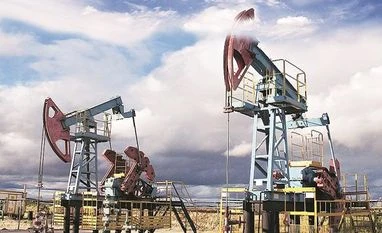Windfall tax on domestic crude oil cut to nil, on export of diesel halved
This means crude oil, aviation turbine fuel (ATF), and petrol will not attract windfall tax
)
Listen to This Article
The Centre has slashed special additional excise duty, commonly known as windfall tax, on domestically produced crude oil, to nil from Rs 3,500 a tonne, effective from April 4, according to a notification on Tuesday.
Further, it has reduced the levy on diesel to 50 paise per litre from Rs 1.
This means crude oil, aviation turbine fuel (ATF), and petrol will not attract windfall tax.
The move is expected to give significant relief to top fuel exporters like Reliance Industries, and oil explorers like Oil and Natural Gas Corporation (ONGC).
The decision has been taken after a detailed review of global crude oil prices, a government official told Business Standard.
Also Read
He said tax rates were reviewed every fortnight based on average oil prices in the previous two weeks.
Windfall tax is a special tax imposed by a government on a company or industry when it makes unanticipated gains, termed windfall profits.
Applauding the decision, a petroleum and natural gas ministry official said it would encourage higher domestic production of crude oil, which has been a key focus of the government.
The official stressed the levy on locally produced crude oil had been systematically brought down in line with changing global prices over the past few months.
This has happened after state-owned refiners such as Indian Oil Corporation informed the Centre of their shrinking realisations as global prices have cooled, he said.
India aims to have 1 million square km under crude oil and natural gas exploration by 2030 in order to meet rising domestic demand for hydrocarbons. A series of policy changes has also sought to incentivise more domestic production of crude oil.
Notably, in the last review, the levy on domestic crude oil was reduced from Rs 4,400 per tonne to Rs 3,500.
The official, however, indicated the levy might come back if global prices remained elevated over the next few weeks.
The levy on ATF had been reduced to nil on two occasions last year, but was raised later, he said.
Brent crude oil prices rose to $84 per barrel on Monday after the Opec+ group announced a sudden production cut over the weekend. It hovered around $85.5 around midday on Tuesday, as of the time of writing this report.
India first imposed windfall profit tax in July last year, joining a growing number of nations that taxed super-normal profits of energy companies.
It had imposed windfall taxes on the export of petrol, diesel, and ATF, and on the domestic production of crude oil. It also mandated exporters to meet the requirements of the domestic market first.
Following the government’s move, Indian oil companies were to pay Rs 6 per litre (around $12.2 per barrel) on exporting petrol and ATF, and Rs 13 per litre (around $26.3 per barrel) on exporting diesel.
At the same time, upstream producers had to pay Rs 23,250 per tonne (around $38.2 per barrel) of crude oil produced in India.
However, export tax on petrol was scrapped in the first review and that on ATF was done away with at the last review.
“The withdrawal of windfall tax, except the reduced levy on diesel, is a cheer for oil-producing companies. Since it’s a levy, windfall tax made its impact on the oil companies’ economics and, for the large part, this levy has been debatable despite it being arguably a positive step in net-zero journey for a nation like India,” said Sumit Singhania, partner, Deloitte India.
More From This Section
Topics : Crude Oil tax diesel oil companies
Don't miss the most important news and views of the day. Get them on our Telegram channel
First Published: Apr 04 2023 | 8:02 PM IST
